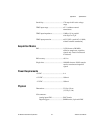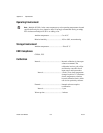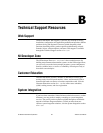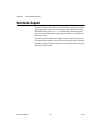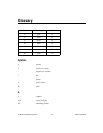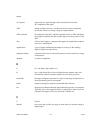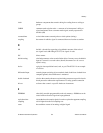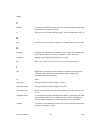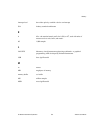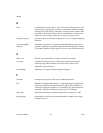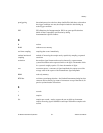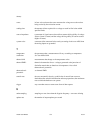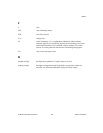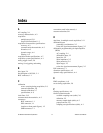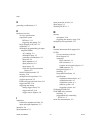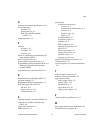Glossary
NI 5911 User Manual G-6 ni.com
N
noise an undesirable electrical signal—noise comes from external sources such
as the AC power line, motors, generators, transformers, fluorescent lights,
soldering irons, CRT displays, computers, electrical storms, welders, radio
transmitters, and internal sources such as semiconductors, resistors, and
capacitors. Noise corrupts signals you are trying to send or receive.
Nyquist frequency a frequency that is one-half the sampling rate. See also Nyquist Sampling
Theorem.
Nyquist Sampling
Theorem
the theorem states that if a continuous bandwidth-limited analog signal
contains no frequency components higher than half the frequency at which
it is sampled, then the original signal can be recovered without distortion.
O
Ohm’sLaw (R=V/I)—the relationship of voltage to current in a resistance
overrange a segment of the input range of an instrument outside of the normal
measuring range. Measurements can still be made, usually with a
degradation in specifications.
oversampling sampling at a rate greater than the Nyquist frequency
P
passband the frequency range that a filter passes without attenuation
PCI Peripheral Component Interconnect—a high-performance expansion bus
architecture originally developed by Intel to replace ISA and EISA; it is
achieving widespread acceptance as a standard for PCs and workstations
and offers a theoretical maximum transfer rate of 132 Mbytes/s
peak value the absolute maximum or minimum amplitude of a signal (AC + DC)
posttriggering the technique to acquire a programmed number of samples after trigger
conditions are met



